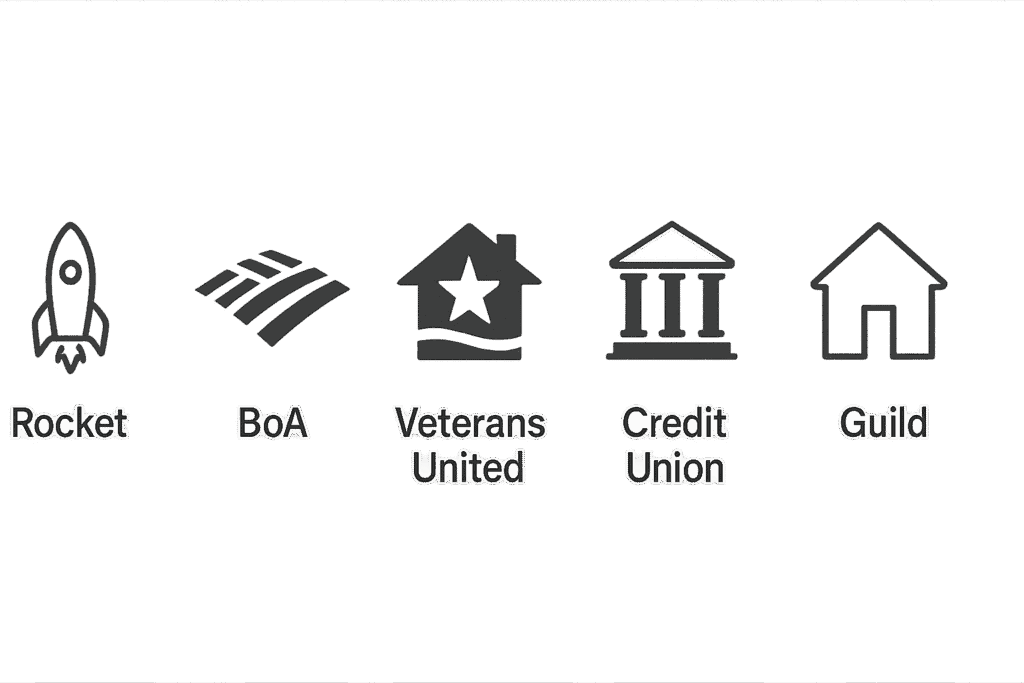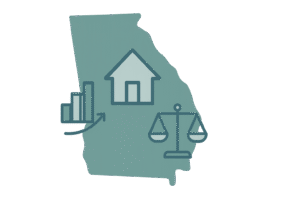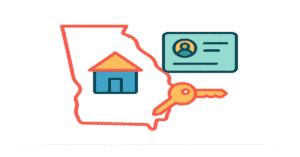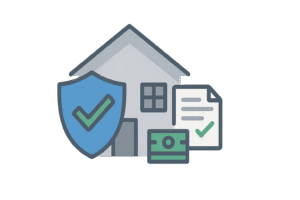Best Mortgage Lenders: A Review For Home Buyers
For 22 years as a real estate closing attorney, I’ve watched countless buyers make a single, costly mistake. They often discover too late that a…

For 22 years as a real estate closing attorney, I’ve watched countless buyers make a single, costly mistake. They often discover too late that a different loan program or lender could have saved them thousands of dollars.
The path to homeownership begins with a crucial choice: selecting the right mortgage lender. The disappointment of a young couple discovering they missed a first-time homebuyer program that would have eliminated their private mortgage insurance requirement entirely is a memory that stays with me. This experience, along with hundreds of similar ones, taught me what home buyers really need to know about choosing the best mortgage lenders.
In this best mortgage lenders review, you’ll discover fundamental home buyer mortgage options. Your choice of mortgage lender affects more than just your monthly payments. The right lender can make the difference between getting approved for your dream home and settling for less. During the mortgage process, you’ll discover that financial institutions vary significantly in their loan products, interest rates, customer service, and willingness to work with different financial situations.
For first-time home buyers, especially, the stakes are higher. You’re navigating unfamiliar territory, and a knowledgeable loan officer can guide you toward loan options you might not have considered. The wrong lender might overlook programs that could save you significant money.
This mortgage lender review examines the best lenders available to first-time homebuyers in the United States. We’ll explore different loan types, decode complex mortgage options, and provide detailed reviews of top lenders. Whether you’re exploring a conventional loan, an FHA loan, a VA loan, or a specialized loan program, this guide will help you make informed financial decisions.
Essential Mortgage Loan Types for Home Buyers
| Loan Type | Backing | Min Down Payment | Credit Score Min | Mortgage Insurance | Best For |
|---|---|---|---|---|---|
| Conventional | Fannie Mae/Freddie Mac | 3% | 620+ | PMI if <20% down | Strong credit borrowers |
| FHA | Federal Housing Administration | 3.5% | 580 | MIP required | First-time buyers with lower credit |
| VA | Dept. of Veterans Affairs | 0% | None specified | None | Veterans/military |
| USDA | Dept. of Agriculture | 0% | 640+ | None | Rural buyers with income limits |
| ARM vs Fixed | N/A | Varies | Varies | Varies | Short-term (ARM) or long-term stability (Fixed) |
Before diving into specific lenders, it’s vital to understand your mortgage loan options.
Conventional Loans: What They Are and Who They’re For
Conventional mortgages are the most common type of loan in the United States. They are not insured by the federal government but are typically backed by Fannie Mae or Freddie Mac. Conventional loans offer competitive rates and flexible terms. For borrowers with strong credit history and stable income, a conventional loan often provides the best deal. Down payment requirements vary, but some loan programs allow as little as 3% for first home buyers. However, a down payment of less than 20% requires private mortgage insurance (PMI), which protects the lender.
FHA Loans: Flexible Options for First-Time Buyers
FHA loans, backed by the Federal Housing Administration, are a great option for borrowers who might not qualify for conventional financing. These government-backed mortgages feature more flexible eligibility requirements, making homeownership accessible to a broader range of buyers. The minimum credit score requirement for an FHA loan is typically lower than for a conventional loan, sometimes accepting scores as low as 580 with a 3.5% down payment. FHA loans do require mortgage insurance premiums. While this adds to the monthly payments, the program’s accessibility often outweighs the cost for borrowers who might otherwise struggle to obtain financing.
VA Loans: A Guide for Veterans and Military Families
VA loans, guaranteed by the U.S. Department of Veterans Affairs, offer exceptional benefits for eligible military members, veterans, and their spouses. These home loans often feature no down payment requirement and no private mortgage insurance, making them one of the most advantageous loan programs available. Veterans United has emerged as a leading VA loan specialist, though many traditional lenders also offer these loan options. The key advantage of working with a VA-focused lender is their expertise in navigating the unique needs of the program.
USDA Loans: The Rural Homeownership Advantage
USDA loans serve buyers in eligible rural areas. These home loans, backed by the U.S. Department of Agriculture, offer 100% financing for qualified borrowers, eliminating the down payment requirement. Eligibility requirements for USDA loans include both geographic and income restrictions. Borrower median income typically cannot exceed 115% of the area’s median income. Despite these limitations, USDA loans provide an excellent opportunity for buyers to achieve homeownership with minimal upfront costs.
Understanding ARMs vs. Fixed-Rate Mortgages

The choice between adjustable-rate mortgages (ARMs) and fixed-rate mortgage loans is a significant one. Fixed-rate mortgages provide payment stability, with the same interest rate and monthly payment throughout the loan term. Adjustable-rate mortgages typically offer lower interest rates but adjust periodically based on market conditions. These loan products can benefit buyers who plan to sell or refinance before the rate adjusts.
Decoding the Jargon: Key Mortgage Terms to Know
Understanding mortgage terminology helps you make informed decisions.
The Difference Between Interest Rate and APR
Interest rates determine the cost of borrowing. The lowest rate isn’t always the best deal. The Annual Percentage Rate (APR) provides a more complete picture by including the interest rate and most lender fees into a single percentage. When comparing lenders, focus on the APR rather than just the interest rate.
Down Payment, PMI, and Closing Costs Explained
Your down payment is the upfront cash you pay toward the purchase price of your home. The amount affects your loan amount, monthly payments, and whether you’ll need private mortgage insurance. Closing costs encompass all fees associated with finalizing your mortgage, including lender fees, title insurance, and appraisal costs. These costs typically range from 2-5% of your loan amount.
What Is Your Debt-to-Income Ratio (DTI)?
Your debt-to-income ratio (DTI) compares your total monthly debt obligations to your gross monthly income. Lenders use this ratio to assess your ability to manage mortgage payments alongside existing debt like credit card balances and student loans.
Your Step-by-Step Mortgage Journey

The mortgage process involves several critical steps.
Step 1: Getting Pre-Approved: The Key to Making a Strong Offer
Pre-approval provides a significant advantage in competitive housing markets. It shows sellers you are a serious buyer with verified financing capability. During pre-approval, lenders verify your income, assets, and credit history to determine the loan amount you qualify for. This process reveals any potential issues early.
Step 2: Shopping for the Best Deal: How to Compare Lenders
Different lenders offer varying loan products. When comparing home loans, consider not just interest rates but also lender fees, customer service quality, and the lender’s ability to close on time. A slightly higher rate from a reliable lender might be preferable to the lowest rate from a lender with a history of delayed closings.
What to Look For in a Loan Estimate
Federal law requires lenders to provide a standardized loan estimate within three business days of receiving your application. This document details your loan terms and closing costs. The loan estimate is your primary tool for evaluating different mortgage offers. Pay attention to the APR, monthly payment, and total closing costs.
Step 3: From Application to Closing: What to Expect
Once you have an accepted offer on a single-family home, the underwriting process begins. Lenders verify all the information from your pre-approval, order a property appraisal, and finalize the loan terms. An efficient mortgage process can often close loans faster than the industry average, which is crucial in a competitive housing market.
Our Top Picks: The Best Mortgage Lenders for Different Needs

The mortgage industry has evolved, with online lenders challenging traditional banks and credit unions.
Rocket Mortgage: Best for Digital-First Experience
Rocket Mortgage has changed the mortgage process with its digital approach, allowing borrowers to complete much of the process online. Their platform provides real-time updates and quick approvals, appealing to borrowers who prioritize speed and convenience.
Bank of America: Best for Traditional Service & Existing Customers
As one of the largest financial institutions in the United States, Bank of America offers a comprehensive range of loan products. Their extensive branch network provides face-to-face service. Bank of America also frequently offers special programs for existing customers.
Veterans United: Best for VA Loan Expertise
Veterans United built its reputation specifically around VA loans. Their loan officers have deep expertise in this specialized area. The company’s focus on military borrowers goes beyond just home loans to include educational resources and support services tailored to military families.
Credit Unions: A Great Option for Personalized Service
Credit unions often provide exceptional value for their members, combining competitive rates with personalized service. As member-owned institutions, credit unions may offer more flexibility in underwriting and often have lower lender fees. Navy Federal is a great example, serving exclusively military members and their families.
Specialized Lenders
Guild Mortgage has established itself as a leader in payment assistance programs for first-time buyers. Its loan officers are trained to identify and explain various assistance options that can reduce down payment requirements. Mortgage brokers also play a crucial role by acting as intermediaries between you and a multitude of lenders, offering access to more loan products.
Smart Money Moves for First-Time Home Buyers
Special Programs That Can Save You Money
The federal government supports homeownership through various programs designed to make home loans more accessible. These government-backed mortgages include FHA loans, VA loans, and USDA loans. Many states and local governments also offer a first-time homebuyer program that provides payment assistance programs, reduced rates, or favorable loan terms. North Carolina, for example, offers various programs. A mortgage credit certificate can also provide annual savings by offering a federal tax credit for a portion of your mortgage interest.
Working with a Pro: The Role of Your Agent and Financial Advisor
Your real estate agent can provide valuable insights about local lenders who consistently close on time. A financial advisor can help you understand how your mortgage choice fits into your broader financial picture. They might recommend different payment options or timing strategies that align with your long-term goals.
Common Mistakes and How to Avoid Them
Not Shopping Around for Lenders
One of the most costly mistakes is accepting the first offer you receive. Lower interest rates and fees vary significantly between lenders, and failing to shop around can cost thousands.
Ignoring Your Credit Score
Your credit score directly impacts your interest rate and loan options. Many new homebuyers don’t check their credit history until they’re ready to apply. Simple steps like paying down credit card balances or avoiding new credit applications can improve your score significantly. Lower credit score requirements are an option with certain loan programs.
Overlooking Hidden Fees and Closing Costs
Focusing on interest rates while ignoring lender fees and closing costs can lead to expensive surprises. Some lenders advertise a lowest rate but charge high fees that make the total cost more expensive.
Making Big Financial Changes Before Closing
Major financial changes during the mortgage process can jeopardize your approval. Taking on new debt or making large purchases can alter your debt-to-income ratio and affect your mortgage. Lenders re-verify your financial information before closing, and a significant change can delay or even cancel your home loan.
Your Path to a Confident Home Purchase
Selecting the right mortgage lender requires balancing rates, fees, customer service, and loan options. The best deal for your situation depends on your unique needs and financial situation. Take time to understand the different loan types and programs available to you. First-time buyers particularly benefit from exploring FHA, VA, and state or local payment assistance programs that can reduce costs or down payment requirements.
Remember that the lowest rate isn’t always the best deal when lender fees, customer service, and reliability are considered. Focus on finding a lender who provides competitive pricing while offering the service and expertise you need for a smooth home purchase. Your mortgage loan is likely the largest financial commitment you’ll ever make. Investing time to research options and select the right lender pays dividends for years to come through lower costs and a smoother homebuying experience.





